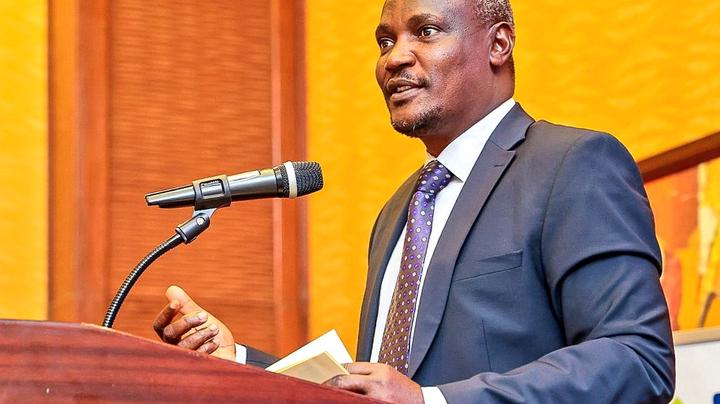In a few weeks’ time, the country will be transitioning to a 2025/2026 Financial Year even as preparations are in top gear ahead of July 1.
Already, the National Assembly’s Committee tabled its report on the proposed 2025/2026 budget, which is estimated to hit the Ksh4.2 trillion mark.
Treasury Cabinet Secretary John Mbadi is expected to read the budget statement on Thursday, June 12.
Some of the notable budgetary allocations that have been proposed include;
Ksh701.1 billion – Key allocations in this sector include:
-Ksh28.9 billion – Junior Secondary Schools (JSS)
-Ksh51.8 billion – Secondary Education
-Ksh5.9 billion – Examination Fees
-Ksh17.2 billion – University Funding Model
-Ksh41.5 billion – Higher Education Loans Board (HELB)
-Ksh7.2 billion – Recruitment of JSS intern teachers
Ksh136.8 billion has been allocated to the health sector, including:
-Ksh54 billion – National Referral & Specialized Services
-Ksh16.8 billion – Reproductive, Maternal, Newborn, Child, and Adolescent Health Services
-Ksh13 billion – Primary Healthcare Fund
-Ksh4 billion – Intern Doctors
-Ksh3.2 billion – Community Health Promoters (CHPs)
Ksh200 billion – Ministry of Defence and Kenya Defence Forces (KDF)
-Ksh125 billion – National Police Service
-Ksh51 billion – National Intelligence Service (NIS)
-Ksh38 billion – Correctional Services
-Ksh8 billion – Fertilizer Subsidy Programme
-Ksh10 billion – National Agricultural Value Chain Development Project
-Ksh5.8 billion – Food Systems Resilience Project
-Ksh2.3 billion – Value Enhancement of Pastoral Economies
-Ksh4.8 billion – Fisheries and Aquaculture Development
-Ksh2 billion – Sugar Sector Reforms
-Ksh2 billion – Coffee Cherry Revolving Fund
Parliament is expected to debate and approve these proposals ahead of the new financial year.
On the other hand, the Finance Bill 2025, which outlines additional revenue measures to fund the budget, is currently before the National Assembly’s Finance Committee for public participation.
Unlike previous bills that focused on significant tax increases, the 2025 Bill primarily aims to enhance tax administration.
Once public participation is concluded, the Finance Committee will consider the views submitted, draft a report, and table it before the National Assembly for debate and passage before Presidential assent.
Notable Proposals in the Bill Include:
Increase in Tax-Free Per Diems:
The bill proposes increasing the tax-free limit on per diems from Ksh2,000 to Ksh10,000.
Tax-Free Pension Gratuity:
All pension gratuity payments will be tax-exempt, allowing retirees to take home more after retirement.
VAT-Exempt Items:
Some goods currently zero-rated will be classified as VAT-exempt, including packaging materials for tea and coffee, raw materials used in medicine manufacturing, and the supply of electric bicycles and buses.
Withholding Tax:
A new withholding tax will be introduced for those supplying goods to public entities.
Tax Procedures Act Amendment:
The bill proposes the deletion of Section 59, 1B of the Tax Procedures Act, which reads: “Furnish information relating to the tax liability of any person in the manner and by the time as specified in the notice.”
This move has raised concerns among Kenyans, with many opposing it.
The Kenya Revenue Authority (KRA) defended the change, stating it’s intended to curb tax evasion and money laundering. Under the proposed system, KRA software will be integrated with banks to streamline data access.
KRA’s Nickson Omondi, during a forum in May 2025, explained:
“Instead of KRA asking you every now and then to provide the bank statements, why not have the bank give us the statements in advance so that those who are tax cheats are caught in good time?”
The bill also includes reforms to address fraudulent VAT claims, which have cost taxpayers billions.
“Where a person imports or purchases goods or services which are exempt or zero-rated and subsequently disposes of or uses them inconsistently with the intended purpose, the person shall be liable to pay tax at the applicable rate at the time of disposal or inconsistent use,” the bill states.
Already, KRA has begun reforming its VAT claims system, barring certain employees from processing claims, which contributed to increased revenue collection. In April 2025, KRA crossed the Ksh2 trillion revenue mark.
Similar to the budget, the Finance Bill must be passed before July 1, when the new financial year begins.
The Finance Committee is conducting public hearings across various regions to collect Kenyans’ views on the bill. The schedules were published in local newspapers.
The team has already collected views on the Finance Bill in Kiambu, Nandi, Mombasa, Kilifi, Kwale and Machakos Counties.
Alternatively, those who cannot be engaged in the physical participation exercises can scan a QR code that was unveiled by the Finance Committee Chair Kimani Kuria.
Written memorandum were also to be shared with the committee through email of the committee – [email protected] by June 6th 2025.
Kenyans also submit their views through their MPs.
